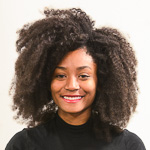Women’s History Month was politically proclaimed in 1987. This country finally found it appropriate to acknowledge a group of citizens who have historically been silenced. As participants in Women’s History Month in 2015, let’s stop allowing the erasure and silencing of women who historically were not deemed worthy to claim womanhood. As we celebrate Women’s History Month, let us also lift up the voices, contributions and bravery of women in the margins.
Let us lift up women of color.
This Women’s History Month, the Black Student Union is devoting an entire series of events to celebrating and amplifying Black Women’s contributions to art, academia and popular culture. Their mission is to approach Women’s History Month programming with a feminist consciousness in order to build a community of students, scholars, activists and allies. The aim is to provide starting points and names for others to advocate for feminism is their respective spaces. To evoke cultural critic Cherrell Brown, the Black Student Union asks: What does it mean to celebrate black womanhood in the face of state violence against black women and men?
A lot.
Because feminism is the vivifying principle of their programming, a basic understanding of the black women’s epistemology and the intellectual framing of black feminism is essential. Black feminism has a rich history in the United States, beginning in the antebellum period.
Anna Julia Cooper was born to a black mother and a white slavemaster father and is often credited with writing the foundational black feminist text. Her first book, “A Voice from the South,” published in 1892, delineates what many consider the framework for black feminism. Cooper suggested that black women played a special role in the uplift of the black race. The series critically engages with a type of uplift that’s all the more empowering given the context of current events
Though the premise of her argument works within the antiquated framework of the cult of true womanhood, her ruminations on the stakes of black womanhood are timeless. She notably wrote, “Only the BLACK WOMAN can say, ‘when and where I enter, in the quiet, undisputed dignity of my womanhood, without violence and without suing or special patronage, then and there the whole Negro race enters with me.’”
With this bold assertion, Cooper poignantly articulated intersectionality. This term, coined by contemporary black feminist scholar Kimberle Crenshaw, acknowledges the interconnectedness and nuance of various forms of oppression, domination and discrimination. Crenshaw’s scholarship focuses on the double bind of gender and race. Her analyses of oppression looks at the ways that systemic oppression interacts with multiple aspects of identity.
As Audre Lorde famously stated in her 1982 address to Harvard students for Malcolm X weekend, “There is no single issue struggle because we do not live single-issue lives.” Identities overlap. This notion of intersectionality, then, offers a strong foundation for the Black Student Union’s framing of black feminism. They support a worldview that takes a holistic approach to understanding black women at the crux of race, sexuality, gender, and class oppression. The cultural work that black feminism does is often beyond the purview of mainstream feminism, whose range of thought seldom embraces diverse visions of self, community and society.
To put it plainly, black feminism is the demand for justice. The BSU’s celebration of black womanhood through a feminist framework functions as a form of resistance to racism, sexism and heterosexism that have made calculated efforts to disempower black people for centuries.
The events throughout the month are all-inclusive and not only celebrate and uplift, but provide spaces for generative learning. The Black Student Union’s artist in residence, Alysia Harris, will be on campus for a few days in March to lead a discussion on the role of women of color in social movements, teach a poetry writing workshop, and present her critically acclaimed work at “Our Silence Will Not Protect Us: A Night of Poetry with Alysia Harris” on March 5. Black Women in Academia, the capstone event, is a colloquium that gives students the opportunity to hear from some of the nation’s brightest minds and will be held on March 8th. The colloquium features short research presentations, a question and answer session and time to mingle with the academics afterwards.
The closing event will be a photo shoot titled “Different Shades of Beauty” that aims to capture the essence of women. Women’s History Month is a time to uplift and celebrate – especially those on the fringes.
Contact Mysia Anderson at mysia ‘at’ stanford.edu and Shelby Sinclair at shelbys8 ‘at’ stanford.edu
